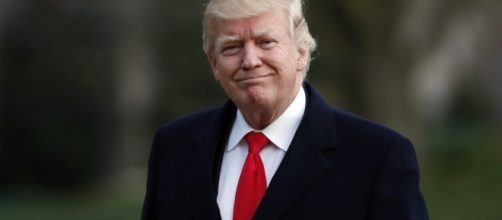During the 2016 campaign, then-candidate Donald trump was critical of the NATO alliance, which has kept the peace in Europe, except the 1990s conflicts in the Balkans, ever since the end of the Second World War. So the irony that President Trump’s first foreign trip will be to Brussels for a meeting in May of all of the leaders of the member states of the alliance was delicious in the extreme. The announcement will likely go a long way toward mollifying the ire of many in NATO over the fact that Secretary of State Rex Tillerson will not be attending an earlier meeting in April to instead meet with Chinese leader Xi Jinping at Mar-a-Lago along with Trump.
Tillerson is also scheduled to meet with Vladimir Putin in Moscow later that month.
NATO was the bulwark against Soviet aggression in Europe until the fall of the USSR in 1991. Indeed, had World War III happened it would likely have started with a land invasion of Western Europe across the North German Plain and through the Fulda Gap in Central Germany. However, NATO has only gone to war during the 1990s Balkans conflict against Serbia, one of the successor states of Yugoslavia. Things have gone full circle with NATO, now including countries of the former Soviet-dominated Warsaw Pact such as Poland and the Baltic States, arrayed against Putin’s imperialist ambitions.
While Trump as president has come to accept the relevance of NATO, he has complained about the tendency of some member states to not live up to their obligations to maintain a large enough defense establishment, thus embarking on a free ride based on American military power.
Trump brought up this issue to German Chancellor Angela Merkel when she visited the White House recently, providing an awkward moment.
Besides the issue of burden sharing, the other source of contention that Trump is likely to bring to Brussels is his desire for a rapprochement with Russia, in part to make that country an ally against Islamist terrorism, among other things. While no doubt such an alliance would be of great use, Putin could ease things by not casting a covetous eye toward the countries of Eastern Europe in his quest to make Russia great again.

